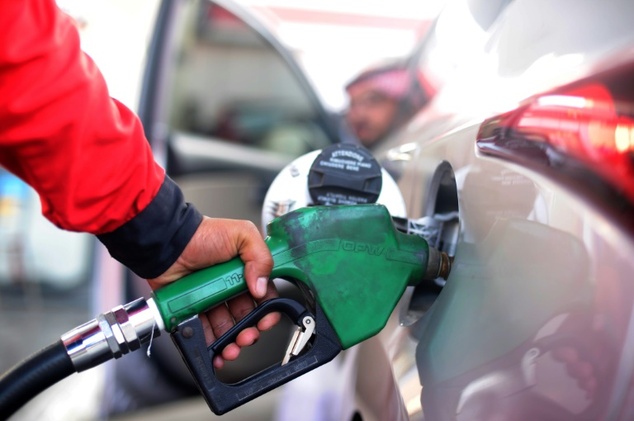
Ogun State
Since this year started, Nigeria has spent an excess of $5 billion (4.3 billion euros) on sustaining fuel subsidy. The Federal Government has described the process of subsidizing the petroleum industry as corrupt and hugely inefficient. It said fuel subsidy neither did nothing to alleviate the sufferings of low income earners nor end fuel scarcity. For these reason, I do not support the continued payment of the so-called fuel subsidy.
Lagos
I don’t believe there was ever fuel subsidy in the first place. Surcharge is what exists not subsidy. There is too much corruption in the Nigerian oil industry.With global crude oil prices dropping to unprecedented levels, the International Monetary Fund (IMF) has advised the Nigerian government to remove subsidies because Nigeria is known for her over dependence on oil revenue, but cannot sustain this never ending subsidy payment.
Oyo State
I don’t think fuel subsidy is the issue here because President Muhammadu Buhari’s government promised us that the refineries will get back to work but nothing has happened. We have the human resources to make these refineries work. Secondly, the government said after removing subsidies, oil marketers will be allowed to source for foreign currencies from parallel markets, meaning the Naira will be under pressure because the demand for the dollar will increase and ultimately lead to a crash. But today, reverse is the case.
Lagos
To understand the answer clearly, we have to first recall the incredible growth and escalation of the fuel subsidy over the years. There has been exponential growth in the cost of fuel subsidy. In 2011, about N450m was budgeted for fuel subsidy. We saw this growing to an amount that went beyond the budgeted figures and, over the years, rising to between N1.8bn to N2.1bn. That, in itself, has always been more than one-third of the national budget every year and it is more than four per cent of the Gross Domestic Product and greater than 118 per cent of the capital budget. Can we say spending so much on consumables is right? Can the nation survive if we continue to spend in this manner? The answer is definitely no. Increasing crude oil prices does not explain the exponential growth of subsidy, neither can population growth. At the same time, the amount of daily Premium Motor Spirit consumption has not grown in the same manner as the subsidy. The statistics do not match at all. What could have then caused the growth of amount paid in subsidy but corruption? Therefore, it has become imperative that the government stops the payment of subsidy on petroleum products. This would allow government activities have usable funds for infrastructure development; that way the country can move forward.
Ogun State
No, total removal of subsidy is the way forward. This will reduce or wipe out fuel crisis because sellers will dispense fuel at the price that will reflect the cost that they got the products to their stations. This will result in willing buyers and willing sellers; competition will be created which in turn will encourage the availability of products. This is how it is done in countries that intend to make progress.
Agege, Lagos
No, government should stop subsidizing fuel. They should rather embark on getting our refineries and depots that are distributed all over the country working. Even though the combined capacity of the refineries is not able to produce the daily needs of the country, it will reduce the volume being imported. This will over time reduce the need for payment of subsidy and lessen the fuel supply crisis.
Anambra State
For how long are we going to continue subsidizing fuel? We really need to find a lasting solution to the menace of fuel scarcity. People often say the cause of this crisis is hoarding, but the truth is that nobody is hoarding fuel; you cannot hoard what you don’t have. NNPC is the only one importing. In fact, there are two reasons why we cannot import. One is that there is subsidy and the second is that there is no provision for payment of subsidy in the budget. So, until we address these, we keep going round the circle.
Lagos
We are stilling subsidizing fuel because if the Federal Government since the beginning of this democracy in 1999, had taken the issue of repairing the refineries seriously, Nigeria would have begun refining its crude oil locally. But this has not happened and the nation still depends on imported fuel due to insensitivity, and the corrupt nature of the government. That is why we keep having this recurrent fuel scarcity every year.
Ikeja
If the government can repair the nation’s refineries and they are made to produce at the optimal level to meet local consumption, there will be no more need to rely on imported fuel. I pray and hope that our leaders will wake up to their responsibilities by making our refineries to produce optimally. By engaging in this, we may have to discontinue fuel subsidy.
Imo State
No, the decision to abolish fuel subsidy is the right one. In 2011 alone, fuel subsidy cost the country an estimated $8 billion and the price tag for 2012 was expected to be even greater. This does not even take into account the country’s losses due to market distortions as a result of the subsidy. If Nigeria’s government can implement transparent and well-structured reforms, the funds from the fuel subsidy program could be put to far greater use.With an estimated 37.2 billion barrels of proven oil reserves, Nigeria is one of the world’s largest oil producers. However, the country’s mineral riches have not resulted in a significant improvement in the quality of life for the majority of her citizens, 54 percent of whom live below the national poverty line. In 2010, Nigeria earned $59 billion from oil exports. Nigeria does not lack the resources to reach its development goals, rather its resources have been utilized inefficiently. The government must utilize these resources more efficiently to create social welfare and infrastructure improvement programs that will not only improve the quality of life for Nigeria’s poorest but also develop the country as a whole.
Lagos
The cost of the fuel subsidy has continued to grow exponentially. This is partly due to the rising cost of fuel—which meant that the government had to spend even more to keep domestic prices low— and also due to Nigeria’s increasing population— which resulted in increased fuel consumption; together these pressures made the cost of the fuel subsidy unsustainable. The amount spent on fuel subsidy should be channelled to other infrastructural projects that would be beneficial to all.
Ondo State
One legitimate criticism against the Nigerian government is that it has done a poor job in planning for the subsidy removal and in communicating the huge costs of the fuel subsidy and the benefits of its removal to the population. In a country where there is already a lack of trust between the people and government, communication is critical. The real challenge the government faces is winning the trust of the people. Working Nigerians are hurting and their livelihoods are in danger with the doubling of petrol prices. They want to know that the government has a credible plan. Some form of social protection must be launched immediately to protect the most vulnerable. This could include measures to reduce the cost of public transportation in the short term.
Lagos
Discontinuing the fuel subsidy is a step in the right direction. The government should assemble a committee of key civil society organizations to oversee the investment of proceeds from excess crude oil. Unlike the fuel subsidy itself, the fund should be targeted toward helping the poor through programs such as the reduction of maternal and infant mortality and improving road quality and access. Most importantly, everything should be done towards improving Nigeria’s economic development. The government and the proposed civil society oversight committee must prioritize sustainable investments that will have a long-term development impact.
Akinbode Elijah
Lagos
Bayelsa State
The removal of the fuel subsidy should be supported. If implemented correctly, fuel scarcity could become a thing of the past. Moreover, the removal of the fuel subsidy, would create the opportunity for Nigeria to finally develop refinery capacity and consequently increase its potential revenue from the oil sector and create jobs. Civil society organizations should take this opportunity to monitor the funding that would accrue to the nation when the subsidy program is ended.
Copyright Ships & Ports Ltd. Permission to use quotations from this article is granted subject to appropriate credit given to www.shipsandports.com.ng as the source.

